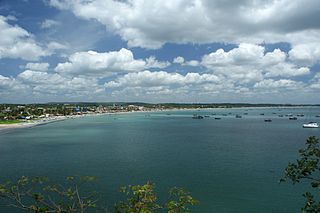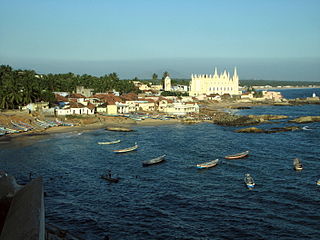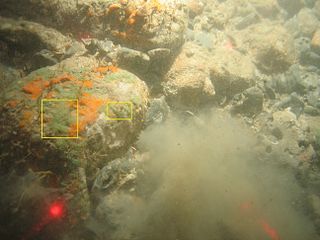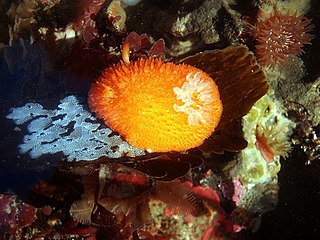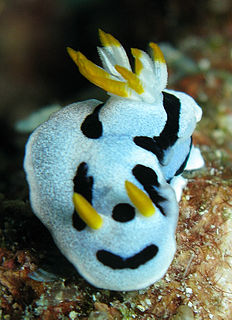| Aldisa andersoni | |
|---|---|
 | |
| A mating pair of the nudibranch Aldisa andersoni, Mirissa, Sri Lanka. | |
| Scientific classification | |
| Kingdom: | Animalia |
| Phylum: | Mollusca |
| Class: | Gastropoda |
| Subclass: | Heterobranchia |
| Infraclass: | Euthyneura |
| Clade: | Nudipleura |
| Order: | Nudibranchia |
| Superfamily: | Doridoidea |
| Family: | Cadlinidae |
| Genus: | Aldisa |
| Species: | A. andersoni |
| Binomial name | |
| Aldisa andersoni Gosliner & Behrens, 2004 [1] | |
Aldisa andersoni is a species of sea slug, a dorid nudibranch, a marine gastropod mollusk in the family Cadlinidae. [2]
In biology, a species ( ) is the basic unit of classification and a taxonomic rank of an organism, as well as a unit of biodiversity. A species is often defined as the largest group of organisms in which any two individuals of the appropriate sexes or mating types can produce fertile offspring, typically by sexual reproduction. Other ways of defining species include their karyotype, DNA sequence, morphology, behaviour or ecological niche. In addition, paleontologists use the concept of the chronospecies since fossil reproduction cannot be examined. While these definitions may seem adequate, when looked at more closely they represent problematic species concepts. For example, the boundaries between closely related species become unclear with hybridisation, in a species complex of hundreds of similar microspecies, and in a ring species. Also, among organisms that reproduce only asexually, the concept of a reproductive species breaks down, and each clone is potentially a microspecies.

Sea slug is a common name for some marine invertebrates with varying levels of resemblance to terrestrial slugs. Most creatures known as sea slugs are actually gastropods, i.e. they are sea snails that over evolutionary time have either completely lost their shells, or have seemingly lost their shells due to having a greatly reduced or internal shell. The name "sea slug" is most often applied to nudibranchs, as well as to a paraphyletic set of other marine gastropods without obvious shells.
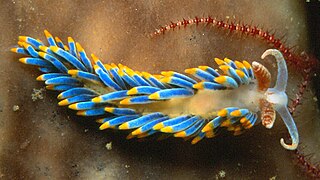
Nudibranchs are a group of soft-bodied, marine gastropod molluscs which shed their shells after their larval stage. They are noted for their often extraordinary colours and striking forms, and they have been given colourful nicknames to match, such as "clown", "marigold", "splendid", "dancer", and "dragon". Currently, about 3,000 valid species of nudibranchs are known.
